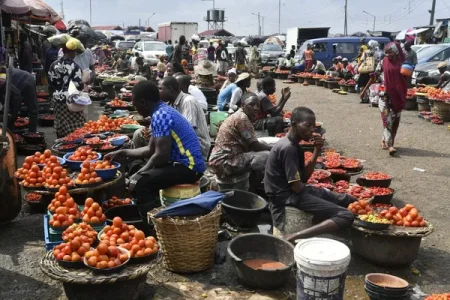
Nigeria's inflation rate rose to 34.19% in June 2024, with food inflation hitting 40.87%, according to the National Bureau of Statistics. The increase highlights ongoing economic challenges, particularly in the food sector. Experts call for government intervention to stabilize prices and protect vulnerable households from further financial strain.
Nigeria's inflation rate climbed to 34.19% in June 2024, a slight increase from 33.95% in May, according to the National Bureau of Statistics (NBS). The latest consumer price index (CPI) report, released on Monday, reveals persistent economic challenges, particularly within the food sector.
The CPI, which tracks changes in the prices of goods and services, shows a significant rise in food inflation, now at 40.87%. This spike reflects ongoing price increases for food and non-alcoholic beverages, placing additional strain on household budgets.
Economic analysts caution that this trend threatens economic stability and household purchasing power. The rising costs are attributed to several factors, including supply chain disruptions, elevated import expenses, and local production issues. The impact is particularly severe for low and middle-income families who allocate a larger portion of their income to essential goods.
Experts are urging the government to intervene promptly to stabilize prices and ensure food security. Suggested measures include boosting agricultural productivity, improving supply chain efficiency, and implementing policies to control escalating costs.
The NBS report highlights the urgent need for comprehensive strategies to address the root causes of inflation and lessen its effects on the population. As Nigeria faces these economic pressures, the government and policymakers are under increasing pressure to act decisively to protect vulnerable citizens and stabilize the economy.




